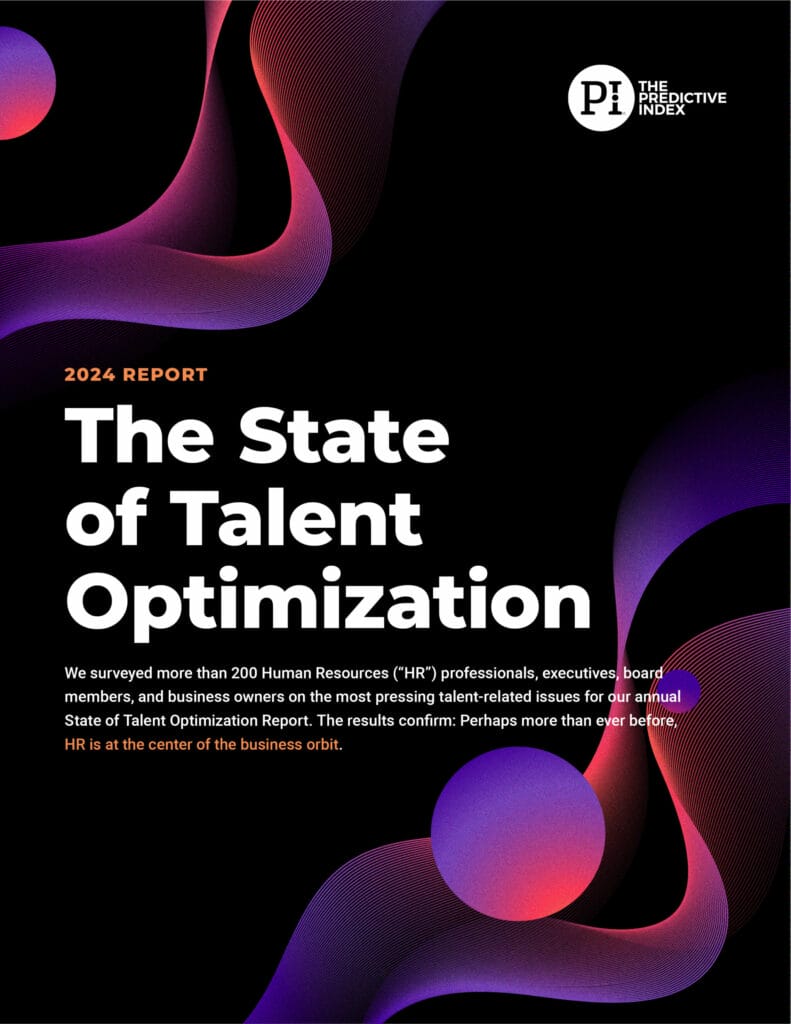

New report highlights how HR can support common business challenges
75% say HR is a critical part of leadership. We surveyed more than 200 Human Resources (HR) professionals, executives, board members, and business owners on the most pressing talent-related issues for our annual State of Talent Optimization Report.
Less than half of respondents are satisfied with the job their managers are doing.
Organizational success hinges on effective leadership. In competitive labor markets, investing in leadership development strengthens corporate culture, boosts morale, and enhances productivity while reducing turnover.


63% of respondents saw at least
5% turnover in the past year.
Job fit can be fleeting. It’s an abstract concept made a little simpler by science-backed people data that solidifies the behaviors and drives correlated to success in a specific role. Leaning on the right data helps bring clarity to a murky process.

Empower your team through Talent Optimization.
Support key stakeholders throughout the business – managers, hiring teams, candidates, and executives – by equipping them with the right tools and the right data.
76% of respondents say leadership is occasionally involved in talent decisions.
When leadership isn’t attuned to the actual work on the ground, their messaging tends to fall flat. The takeaway? HR not only bridges the gap between leadership and management, but their involvement in decision-making can have a profound impact on the culture of an organization.


57% of respondents said employees left because of their manager in the past year.
People want to feel they belong—but it goes beyond that. Psychological safety can entail a lot of things, but a common thread among people-driven cultures is transparency. That often means sweating the details—communicating clearly the rationale behind key decisions, but also documenting the little stuff.